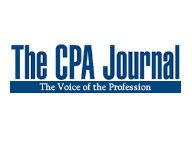Faculty News
—
Professor Melissa Schilling's new book, "Quirky" is spotlighted
—

Excerpt from The New Yorker -- "In 'Quirky: The Remarkable Story of the Traits, Foibles, and Genius of Breakthrough Innovators Who Changed the World,' Melissa Schilling gathers eight titans of STEM—among them Albert Einstein, Steve Jobs, Nikola Tesla, and Benjamin Franklin—and finds that they share a handful of key traits."
Faculty News
—

Excerpt from The New Yorker -- "In 'Quirky: The Remarkable Story of the Traits, Foibles, and Genius of Breakthrough Innovators Who Changed the World,' Melissa Schilling gathers eight titans of STEM—among them Albert Einstein, Steve Jobs, Nikola Tesla, and Benjamin Franklin—and finds that they share a handful of key traits."






















